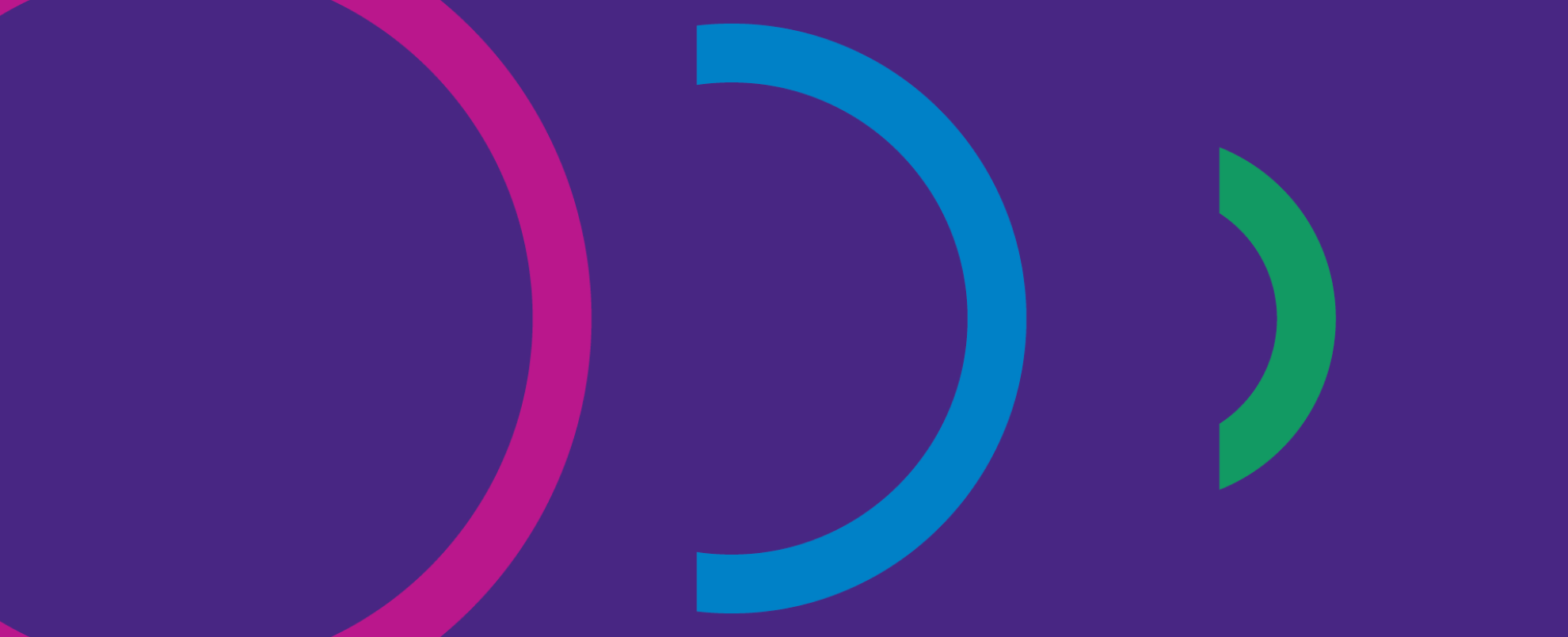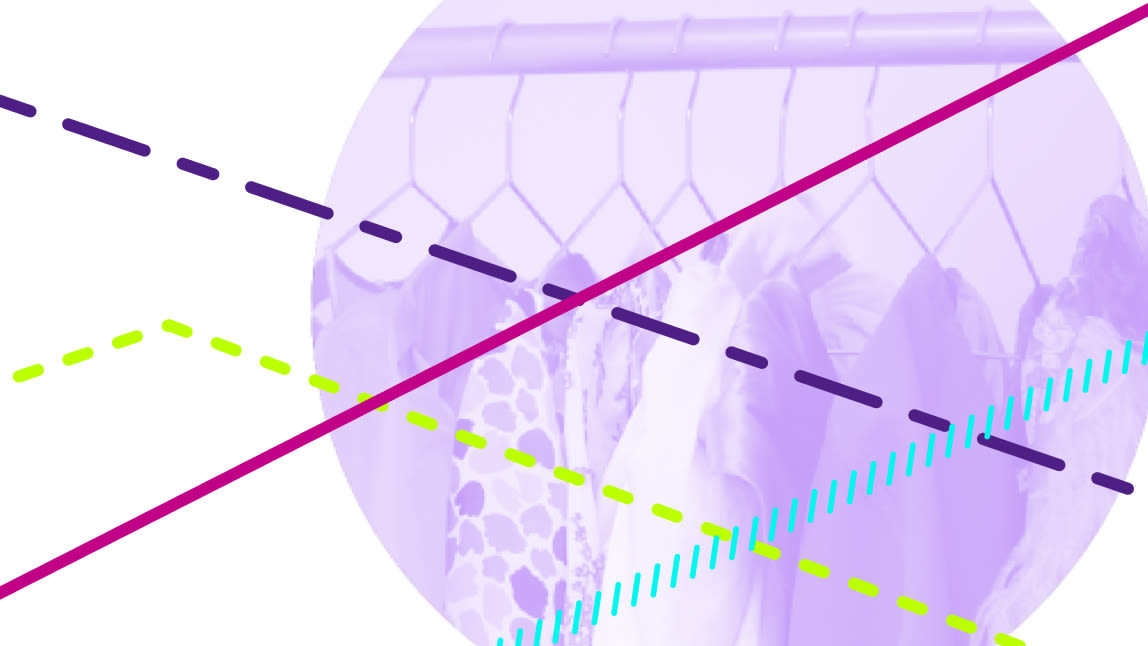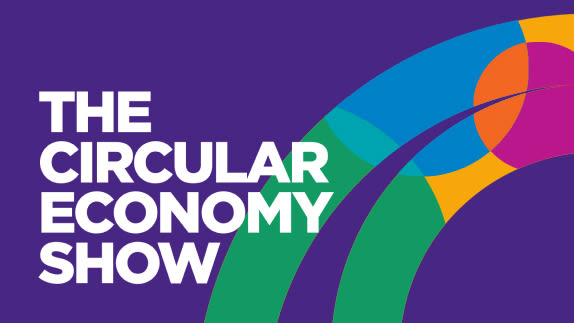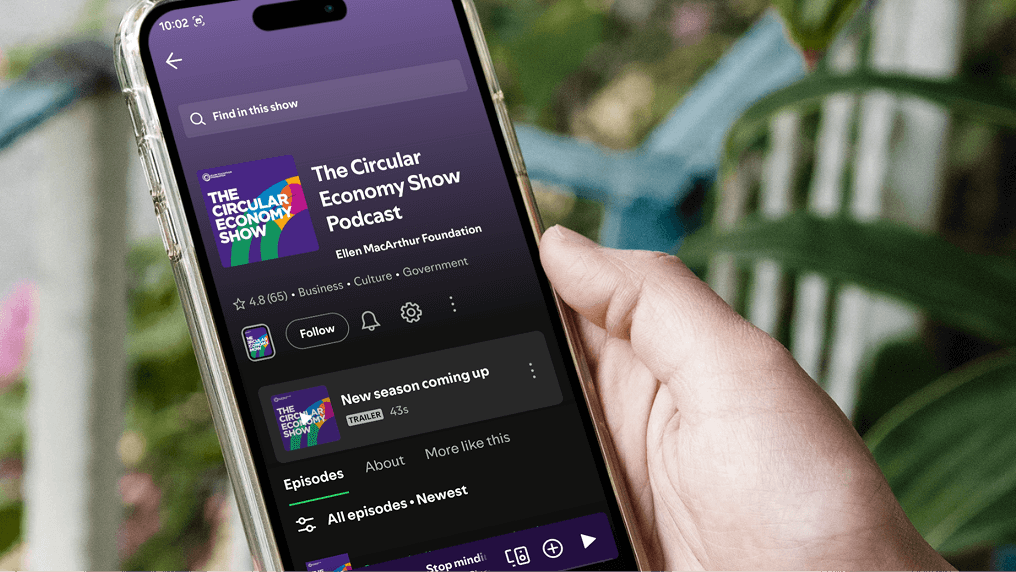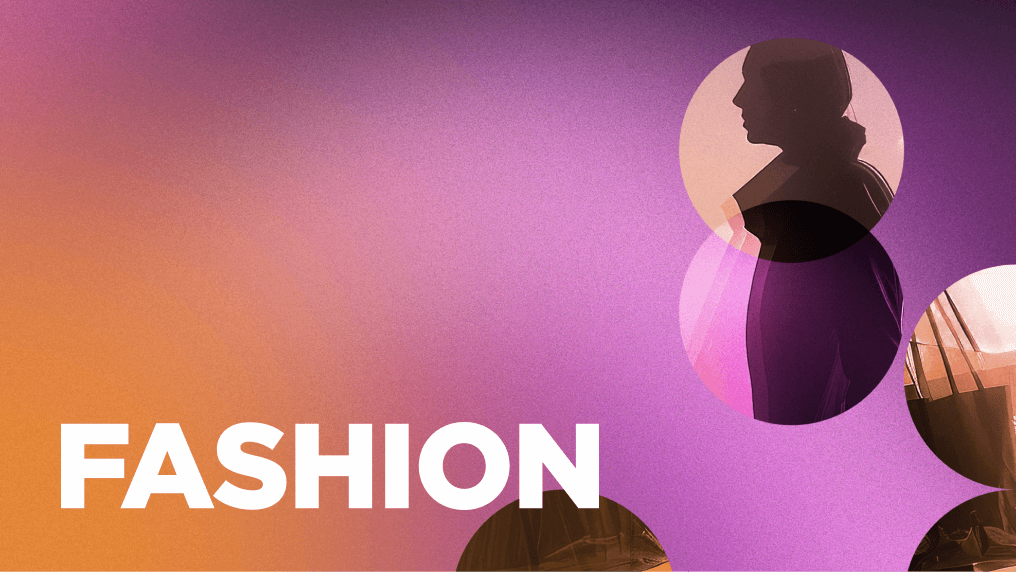In the second episode of our fashion series, we head to Mexico City to meet Troquer’s co-founders, Lucia and Ytzia. They discuss how they’ve become Latin America’s leading resale marketplace for quality fashion items, and the challenges they’ve faced on their journey.
Listen on Spotify, Apple Podcasts, or wherever you get your podcast.
Transcript
Jess Mével 0:03 Each year millions of tonnes of clothes are produced, worn and thrown away. To solve the problem, we must reinvent fashion itself. Welcome to the Circular Economy Show Podcast. I'm Jess. In our new fashion series, we're meeting three companies working towards a circular economy for fashion. That means creating better products and services for customers, as well as contributing to a resilient and thriving fashion industry, and regenerating the environment. In this episode, we're heading to Mexico City to meet Troquer, which takes its name from the French verb troquer, which means to swap or to exchange. The start up is Latin America as a leading resale marketplace quality fashion items. We'll hear from Troquer's co-founders about the challenges of changing people's mindsets around secondhand clothing and accessories in the region, and how they differ from a regular e-commerce platform. But first, Troquer's co-founder and Chief Growth Officer, Lucia takes us back to where it all started.
Lucia Martinez-Ostos Jaye 1:01 Well, imagine, 2013. I remember people saying What are you talking about, telling it Ytzia and I: You're crazy. This is not gonna work. So you're you're planning on selling clothes online when everybody's just selling, is buying tickets to... plane tickets and cinema tickets or movie tickets, theatre tickets. And we were saying no, we want to sell clothing. Okay, and then well, actually, it's used. So they were like, no, no, this is, this is not going to work.
Jess Mével 1:43 While in Europe, we were seeing the rise of ultra fast fashion. In Mexico, buying clothes online was still an untapped market. This was an opportunity for Troquer as its CEO and co founder, Ytzia says.
Ytzia Belausteguigoitia 1:55 We've been building Troquer ever since really trying to create a new and innovative experience for selling. And by buying clothing digitally.
Lucia Martinez-Ostos Jaye 2:10 Our mission is we want to revolutionise the way we consume fashion. That's always what we would want to do. We want to change Latin America, first Mexico into consuming secondhand or pre loved garments. More every time, we want to make buyers, sellers and sellers buyers, and just change the way that you consume fashion.
Jess Mével 2:46 By aiming to change mindsets, and Mexico trucker hopes to revolutionise the fashion industry in Latin America, Ytzia explains what they have achieved so far.
Ytzia Belausteguigoitia 2:56 So Troquer has been differential in in the Latin American market, I would extend it all over Latin, by understanding that we are a culture and market prone to using secondhand, right? We don't have our purchasing power is in the US or Europe or Asia. So we're really keen into finding those items that are aspirational, that are attractive. And we understood that enabled to succeed. No, there was there was no competition, but we knew that we had to be differential from what it existed not say eBay or even Mercado Libre, or other companies that that already existed. We understood that we have to be differential and innovative.
Jess Mével 3:50 So how does Troquer distinguish themselves from those other businesses? Ytzia says it was putting circularity particularly circulating products and materials at the front and centre of the business that set them apart. So how are they actually implementing this?
Ytzia Belausteguigoitia 4:06 So we call it like a triple circularity because you have a seller that buys and then sells the item, right? So it's like a circular flywheel, in essence, for optimising the sellers resources. If you see it as a buyer perspective, you buy something that's already in the market, that's existent. And then you put it again in the economy. Or you buy it into the economy, you use it, and then you sell it again. So it's also circular. And if you see it as an item journey, you would see that the item comes into the economy out of the economy, into the economy, out of the economy continuously. And so you're really reusing items making them changing patterns of consumption, making people buy more consciously. And then also sellers, instead of throwing away their monetizing their items.
Jess Mével 5:11 As with any startup, investments are needed from the get go to get it off the ground. Ytzia tells us how they got started.
Ytzia Belausteguigoitia 5:19 We bootstrapped in the beginning, we financed ourselves. And then we received grants, we won grants from the government because at that time, there was an institution, a government institution called INADEM, which is, which was the Entrepreneur Institute. And they, they really detonated the market. So they invested directly in companies, and they also directed through VCs. And that's where the VC sphere in Mexico detonated. So we started Troquer and then we had this help from grants from INADEM. We found the angel investors, we got them in. And then maybe it must have been three, four years from from that we decided to invest, no? properly into marketing, because the organic growth had already had already come. So all of the things that we could have done to grow with referees and recommendations, word of mouth, we did we actually started influencer marketing when when it didn't even existed.
Jess Mével 6:38 Market research also gave them the incentive to start the business says Ytzia.
Ytzia Belausteguigoitia 6:42 When we started surveying our friends, everyone had the same need. So we started interviewing, and then making these evaluations and, and searches around and we said, well, it's the perfect product for the country. And so we saw the size of the opportunity, we really not did the numbers to see what the size of the opportunity was. And if it was not attractive enough, we would open the business and then well, it all kept on coming. So in the in the surveys that we did, we had 90% acceptance of the product. So we said, this is a must. This is something that when you have like fries or companies, no, no, the consumer companies, they launched a product when you have a 70% acceptance, but we had a 90% acceptance. So I was like, yes, full on and we'll see if it goes further or, or or not. No. So it was it's also a startup and you launch a product that maybe doesn't work.
Jess Mével 7:52 Fast forward 10 years, and it's Ytzia and Lucia have successfully grown the business to become the highest generating revenue startup in Latin America, they hope to be an example for other brands to follow.
Ytzia Belausteguigoitia 8:03 It's a declaration where brands have to now be open to introduce maybe circularity into their own business models.
Lucia Martinez-Ostos Jaye 8:15 So we've gone along a long way of making people change educating people. And now I think it's the starting, at least at last, it's starting here in Mexico. So we do see that there's a lot of potential still in Mexico in general. And of course, we see that and that we need to expand further on.
Jess Mével 8:41 By choosing to challenge the status quo of business Troquer has shown that you can succeed by doing things differently. Instead of simply selling to a customer in a linear model, Troquer business model keeps them coming back as sellers as well as buyers. They've also shown that just because an idea goes against current trends, it doesn't mean it won't work. The next time you hear somebody say that won't work, consider it a challenge, rather than a shutdown. Thank you for joining us in this episode of the circular economy Show podcast from the Ellen MacArthur Foundation. Join us next week as a designer gives us a behind the scenes look at what it takes to build a circular fashion brand. Thanks for listening
